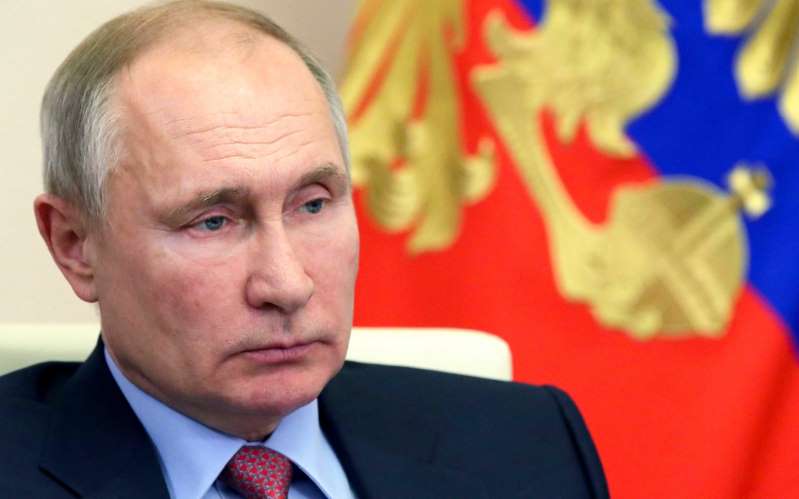








What Russia's Sputnik V vaccine means for the UK
What’s the story?
It was the race the Kremlin was desperate to win.
The global effort to find and develop an effective vaccine for the coronavirus was not just a matter of life and death for the countries that took part: it was a matter of national pride.
Yesterday interim trial data showed that the Russian vaccine, known as Sputnik V, is almost 92 per cent effective against symptomatic Covid after two doses, bringing it in line with many of the jabs that have been developed in the West.
Phase three trials reported by the Gamaleya National Research Centre, which developed the vaccine in Moscow, show little or no side effects in 20,000 participants.
The Russian vaccine works in a similar way to the Oxford/AstraZeneca jab: by placing the genetic material of Covid-19 into a harmless adenovirus, then injecting it into the patient.
So-called “viral vector” vaccines are easier to store and cheaper to produce – making them more convenient than “spike protein” jabs, like the Pfizer and Moderna offerings.

For the Russian government, the apparent safety of the Sputnik vaccine represents not just a national and public health victory but a relief, since authorities began distributing the vaccine before the results of the trials.
More than 1.5 million people, including the Telegraph’s Moscow Correspondent Nataliya Vasilyeva, have already received it. That gamble appears to have paid off.
Ian Jones, professor at the University of Reading, and Polly Roy, professor at the London School of Hygiene & Tropical Medicine, yesterday pointed out that the jab’s development “has been criticised for unseemly haste, corner cutting, and an absence of transparency”.
“But the outcome reported here is clear and the scientific principle of vaccination is demonstrated,” they said.
“Another vaccine can now join the fight to reduce the incidence of Covid-19.”
Others are more circumspect. Boris Johnson, the Prime Minister, has been reluctant to address the news about Sputnik V, despite his enthusiastic support for Pfizer/BioNTech, Moderna and Oxford/AstraZeneca.
In a briefing with reporters yesterday, the Prime Minister’s spokesman insisted any comment on vaccines was a matter for scientists, not Downing Street. Asked why Mr Johnson had not yet welcomed the news, the spokesman would not comment further.
Mr Johnson’s reluctance to welcome the news was shared by his Cabinet, who made no mention of the vaccine all day.
Looking back
That could be explained by the fact that the news follows months of anxiety about the UK’s own vaccine rollout, which began with the first NHS jab in December.
Russia’s first dose, meanwhile, was injected in August. Vladimir Putin, the President, announced on television that his daughter was one of the first to receive it.
The Russians have not been shy about treating the development of the jab as a competition, either. The product’s name is a reference to Sputnik 1, the first artificial satellite to be launched from Earth.
That satellite was launched by the Soviet Union in 1957, and marked both a major turning point in the space race and bitter defeat for the United States.
For UK politicians, who pride themselves on their “world-beating” international comparisons, Russia’s vaccine success is problematic, while the timing of the announcement could not have been worse.
Hours later, Dominic Raab, the Foreign Secretary, issued a statement condemning the Russian courts for their imprisonment of Alexei Navalny, an opposition politician who returned to the country following a near-miss poisoning with a
toxic nerve agent, thought to have been carried out by Russian intelligence services.
Anything else?
All that could mean the UK is unlikely to want to cooperate with Russia on the rollout of its jab – but Russian scientists have already suggested a partnership with Britain.
Kirill Dmitriev, chief executive of the group that funded Sputnik V and a close ally of Mr Putin, said combining a shot of his vaccine with one of the AstraZeneca jab could “actually work better because immunity gets stronger”.
“This idea, called heterogeneous boosting, is at the core of the Sputnik vaccine because we use two different shots and we believe this is the best way to fight with mutations and this also fosters a partnership between different vaccine manufacturers,” he told the BBC.
The proposal presents ministers with an interesting diplomatic question, as well as potential concerns about vaccine efficacy and logistics.
Mixing supplies of Sputnik and AstraZeneca would mean unprecedented co-operation between public health bodies between the two countries. Before coronavirus, the last major incident Public Health England dealt with was the poisoning of Sergei Skripal in Salisbury by Russian GRU agents, which marked a significant cooling of relations.
Elsewhere, both countries also want to use vaccines as a diplomatic tool overseas. With supplies running short and almost all manufacturers based in richer countries, inoculations could become a major source of soft power for the states that have funded their development – including both the UK and Russia.
Matt Hancock, the Health Secretary, has already announced the UK will use its war chest of more than 400 million vaccines to help poorer countries around the world once Britons have been protected. Russia, meanwhile, has taken tens of millions of orders from Egypt, Nepal, Brazil, Mexico and Argentina for Sputnik.
Both will likely use vaccines to strengthen their influence in regions of diplomatic interest, as well as through politically neutral schemes like the WHO’s Covax.
The Refresher take
The development of any new vaccine is a boon for the global fight against coronavirus because the disease will not be brought under control until it has been tackled everywhere.
But the apparent success of the Sputnik V jab presents Russia’s Western rivals with an interesting dilemma: to embrace and support Mr Putin’s vaccine and consider combining it with their own, or to continue to ignore it.
Mr Johnson’s current strategy, to continue to talk up Britain’s successes while jealously guarding its supplies for the first-phase rollout, will come to an end when all UK adults have received their doses.
What he and others do next about Sputnik V could mark a major shift in Russia’s relationship with the West and in the course of the pandemic.
Reference: The Telegraph : Tony Diver
No thoughts on “What Russia's Sputnik V vaccine means for the UK”
Articles - Most Read
- Home
- LIVER DIS-EASE AND GALL BLADDER DIS-EASE
- Contacts
- African Wholistics - Medicines, Machines and Ignorance
- African Holistics - Seduced by Ignorance and Research
- African Wholistics -The Overlooked Revolution
- The Children of the Sun-3
- Kidney Stones-African Holistic Health
- PART ONE: DIS-EASE TREATMENT AND HEALTH-3
- 'Tortured' and shackled pupils freed from Nigerian Islamic school
- The Serpent and the RainBow-The Jaguar - 2
- PART ONE: DIS-EASE TREATMENT AND HEALTH-2
- PART ONE: DIS-EASE TREATMENT AND HEALTH-4
- PART ONE: DIS-EASE TREATMENT AND HEALTH-5
- King Leopold's Ghost - Introduction
- African Wholistics - Medicine
- Menopause
- PART ONE: DIS-EASE TREATMENT AND HEALTH-6
- The Mystery System
- The Black Pharaohs Nubian Pharaohs of Ancient Egypt
Who's On Line?
We have 108 guests and no members online
Ad Agency Remote
Articles - Latest
- Do Yams Have Carbohydrates?
- Cardiac-a-vest! Remarkable garment could save lives by predicting heart attack risk
- Inflammation-Busting Foods: A Review by Nutrition Professionals
- Dermatologist's insight on shower frequency without harming skin
- Meat is crucial for human health, scientists warn
- How dangerous are interactions between herbal medicines and prescribed drugs?
- The definitive guide to BMI, and how much you should really pay attention to it
- The nightly ritual that could improve memory and brain health, according to scientists
- Hyacinth Bean: How Nutritionists Rate Its Nutrients, Health Effects, And More
- Top healthiest fruits with anti-inflammatory properties
- Vitamin B12 deficiency symptoms: How to spot the signs in your feet
- Dehydration may be as bad 'as smoking' for veins - how much water you need to avoid stroke
- Winter Squash: A Superfood Or Not? Nutrition Professionals Weigh In, With Serving Tips And Health Risks
- Why The Nutrition Professionals Love Winter Melon, Nutritional Benefits And Serving Size Guidelines
- Lesser-known lung cancer symptom in arm or shoulder that can't be ignored
- HIV breakthrough as new technology removes all traces of virus from infected cells
- Seven fruits for diabetics to avoid that can increase blood sugar spike risk
- Top 7 Uses and Benefits of Dead Nettle Plants
- 6 physical symptoms of anxiety you shouldn’t ignore, according to experts
